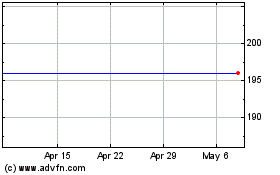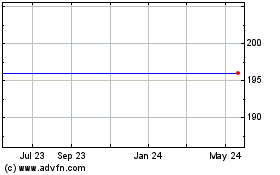Supreme Court will hear challenge to Obama move to limit
deportation of millions
By Miriam Jordan
Tech entrepreneur Cris Mercado still keeps the envelope that he
stuffed in late 2014 with school records, his proof of residence
and other documents he gathered to apply for a new program to
shield him from deportation and enable him to work legally in the
U.S.
"Whatever it took I wanted to be the first to apply," recalled
the 35-year-old undocumented Filipino, who arrived in New York when
he was 5.
Mr. Mercado's hopes were put on hold when a federal judge last
year blocked the implementation of President Barack Obama's new
policy after 26 states filed suit challenging it.
On Monday, the Supreme Court is scheduled to hear oral arguments
on the policy in one of its biggest cases this term, though the
February death of conservative Justice Antonin Scalia leaves the
court at risk of ties. If it deadlocks 4-4, the lower-court
injunctions remain in place, likely freezing the policy for the
remainder of the Obama administration.
The policy is called the Deferred Action for Parents of
Americans and Lawful Permanent Residents, or DAPA. It would offer
temporary protection from deportation and authorize work permits to
about five million undocumented immigrants, most of them parents of
U.S. citizens.
The program is based on a 2012 policy called Deferred Action for
Childhood Arrivals, or DACA. That program, which would be expanded
to include a larger age group, offers the same reprieve to people
brought to the U.S. as children, such as Mr. Mercado.
Opponents say Mr. Obama lacks the legal authority to take such
sweeping executive actions; supporters say he does.
The showdown is mobilizing pro-immigrant groups, with the
backing of major figures in the technology industry, including
Facebook Inc.'s Mark Zuckerberg and LinkedIn Corp. co-founder Reid
Hoffman. The tech industry employs many foreign workers and a
number of tech companies, including Intel Corp., were started by
immigrants.
Thousands of people, including Mr. Mercado, are expected to be
in Washington, D.C., on Monday to demonstrate outside the court
during the hearing.
Over the weekend, 30 undocumented mothers who would be eligible
for relief through the policy were fasting outside the court. The
women, from as far away as San Francisco and Phoenix, planned to
break their fast Monday after the demonstration.
A coalition of immigrant advocacy groups that includes FWD.us,
an organization co-founded by Messrs Zuckerberg, Hoffman and other
tech leaders, created a website, www.fightforfamilies.org, to back
the policies.
"We have been working hard to make sure the voices of those
directly impacted are front and center," said Alida Garcia,
director of coalitions and policies at FWD.us. "That's how we make
our case to the American public -- helping them realize these
individuals are our neighbors, community members and sitting in
pews next to us in church."
The coalition also launched a campaign on social media
encouraging supporters to change their online profile images to
reflect #FightforFamilies and #UnfreezeDAPA on Facebook and
Twitter. It also unveiled an exhibit featuring profiles of
immigrant families who would benefit from the programs.
Groups opposed to the policy haven't planned demonstrations for
Monday, according to a spokesman for the Federation for American
Immigration Reform, or FAIR, which favors a crackdown on illegal
immigration. FAIR's website features a countdown to the hearing. "A
precedent-setting decision," it says, "could allow President Obama
[and future presidents] to run roughshod over the constitutional
separation-of-powers doctrine."
The site encourages people to sign a petition opposing the
policy, which FAIR plans to release to the justices in coming
months as they deliberate on the case. On Twitter, the organization
directs people to FAIR's resource page to learn "what's at
stake."
"Congress didn't delegate to the president the discretion to
allow millions of people here illegally to just stay here, work and
get benefits," said FAIR's president, Dan Stein. "We're trying to
get people to raise hell."
About 11 million people live in the U.S. without legal status.
When the president announced the new policy in November 2014, he
said that Congress's failure to pass an immigration overhaul had
compelled him to use his executive power to offer relief to many of
them.
Immigrants had begun attending information sessions to prepare
to apply for the initiative when a U.S. district judge in Texas
blocked it in February 2015. A federal appellate panel upheld the
injunction in November. The Supreme Court granted the
administration's request to review the case and is expected to rule
in June.
"This has been a challenging situation but we have engaged
thousands of people who weren't engaged before," said Cristina
Jimenez, director of United We Dream, an immigrant advocacy
group.
One of them is Mr. Mercado, of New York. He kept his
undocumented status under wraps as he attended college, earned a
master's degree and started working independently -- unable to be
legally hired by U.S. employers -- with low-income students.
"It feels like this is my last shot," said Mr. Mercado. He had
missed by a year the age cutoff of 30 for the original DACA in
2012.
His company, GrantAnswers, partners with the New York City
Department of Education to offer workshops for students in homeless
shelters to help them apply to college and get jobs.
Next month, Mr. Mercado plans to launch an app, KeyJargon,
designed to help millennials prepare to apply for jobs in
industries such as health care, technology and finance. But "if the
idea fails I can't get hired by an American company."
Homeland Security Secretary Jeh Johnson has said the government
will implement the programs quickly if the court allows them to
take effect. The next president could halt the programs, though
that could create political and pragmatic challenges after
potentially millions of immigrants had obtained temporary
status.
If the court deadlocks 4-4, the lower-court injunctions remain
in place, likely freezing the deferred-action programs for the
remainder of the Obama administration.
"If you unfreeze DACA and DAPA it will allow so many talented
immigrants to fulfill their potential and contribute more to the
U.S.," said Mr. Mercado, who recently has spoken at colleges, such
as New York University, and been invited to speak on immigration
panels, including at the U.S. Chamber of Commerce in Washington on
Tuesday.
Write to Miriam Jordan at miriam.jordan@wsj.com
(END) Dow Jones Newswires
April 18, 2016 02:47 ET (06:47 GMT)
Copyright (c) 2016 Dow Jones & Company, Inc.
Linkedin Corp. Class A (NYSE:LNKD)
Historical Stock Chart
From May 2024 to Jun 2024

Linkedin Corp. Class A (NYSE:LNKD)
Historical Stock Chart
From Jun 2023 to Jun 2024
